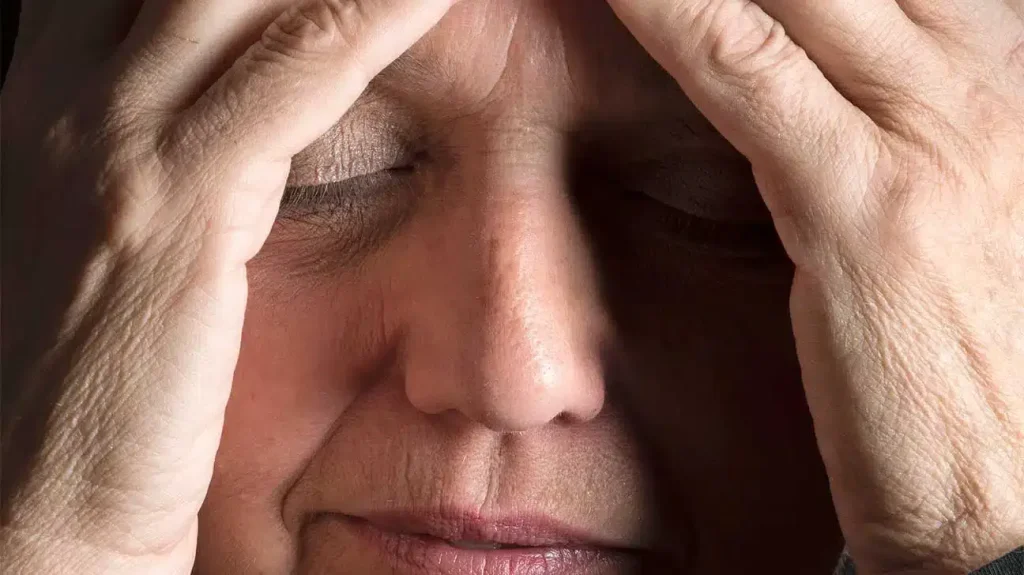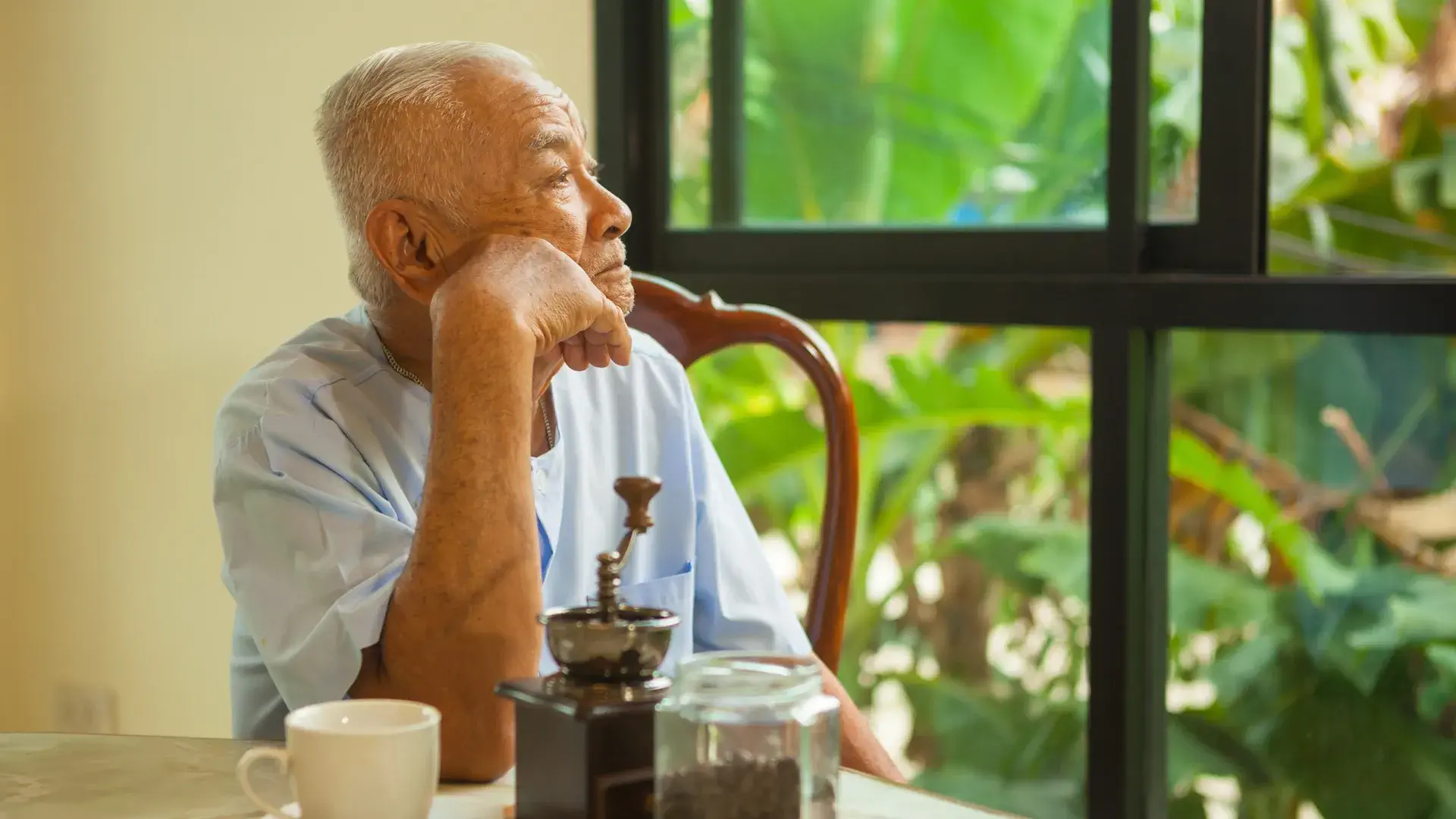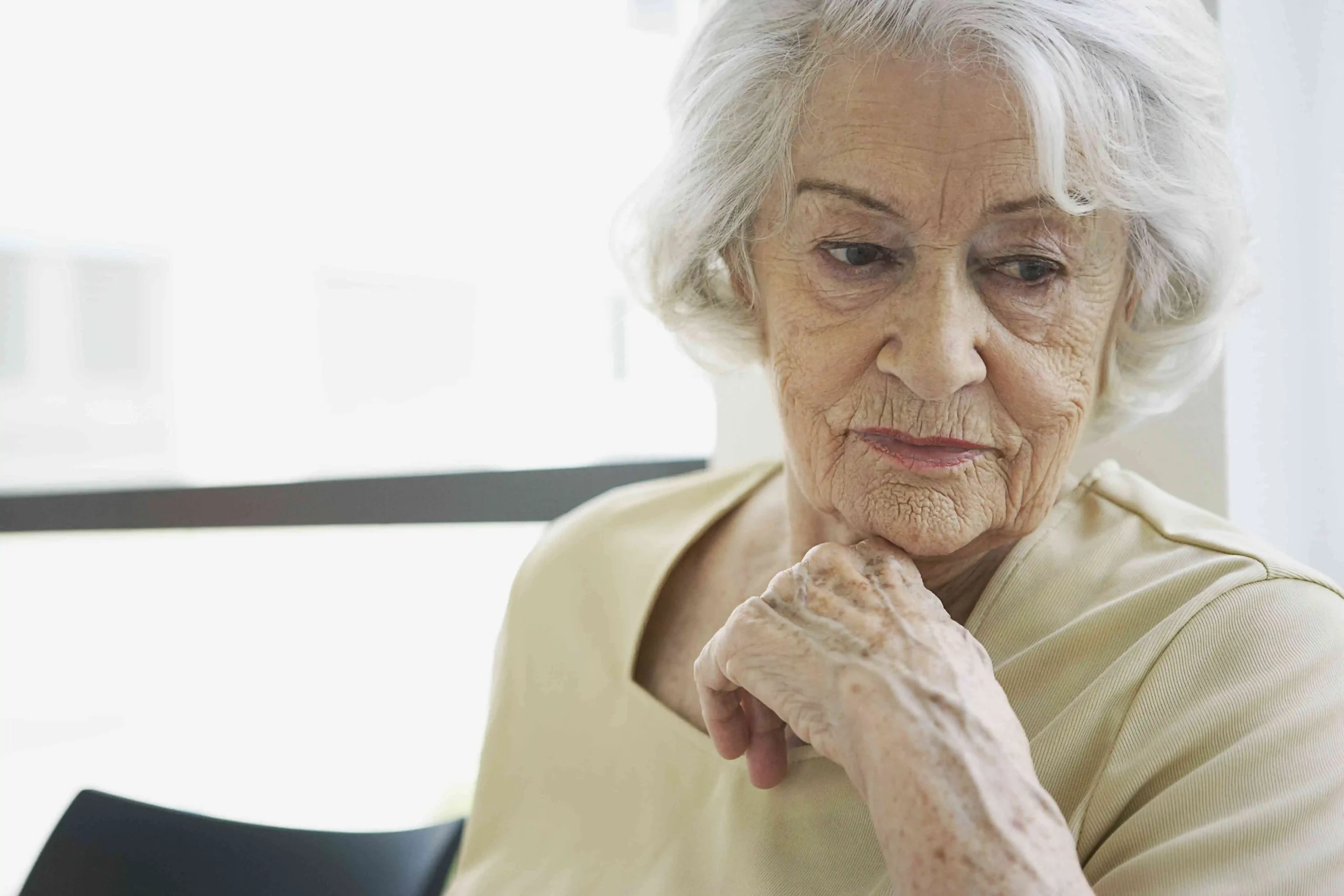
Elderly Mood Disorders | Causes, Prevention and Treatment + Tips
All kinds of elderly mood disorders can make this period of life difficult and annoying. Old age is very sensitive and a person is at risk of suffering from various mental disorders. With increasing age, many physiological, social and psychological changes occur that can lead to the occurrence and exacerbation of mood disorders such as depression and anxiety. In order to fight mood disorders in the elderly, the best way is to get familiar with these disorders and their symptoms.
Retirement, reduction of physical activities, decline in physical health, increasing dependence on others, lack of participation in social activities, menopause, loss of loved ones, etc. are among the reasons that put the mood health of the elderly at risk. Early identification of all types of mood disorders in seniors can help the treatment of the elderly. Depression, dementia, substance abuse, anxiety disorders, sleep and eating disorders, etc. are among the types of mental illness in the elderly.
How much do you know about elderly mood disorders? Do you know which mental diseases are lurking in the elderly? Do you know how to treat depressed seniors and what steps to take to treat mood disorders in old age? In this article from the humanhealthmag, we are going to examine the elderly mood disorders and its signs and symptoms. Therefore, we suggest that if you have an elderly person around you, stay with this article until the end. Because at the end of this article, in addition to being familiar with the most common mental disorders in old age, you will also know their prevention and treatment methods.
The Most Common Types of Elderly Mood Disorders
The most common types of elderly mood disorders that seniors suffer from can be caused by aging, loss of independence, inactive lifestyle, physical disorders, and the use of certain medications. According to available statistics, more than 20% of adults, including people over 55 years of age, suffer from various mood disorders, and only two out of three of these elderly people are treated.

Identifying the types of mood disorders in the elderly increases the quality of life of these people and increases their life expectancy. Mental disorders can be diagnosed using the signs and symptoms they cause in an elderly person. Failure to diagnose mood disorders can lead to death in the elderly, which is why mental health is very important in the elderly. Depression is one of the most common mood disorders that affects 5% of the elderly and nearly 3.8% of the elderly suffer from anxiety disorders. Men over 75 have the highest suicide rate compared to other age groups.
What are common mood disorders in the elderly? The most common elderly mood disorders are:
- Depression
- Dementia
- Cognitive disorders such as Alzheimer’s and dementia
- Anxiety Disorders
- Delirium or state of confusion and delusion
- sleep disorders
- Appetite disorders (binge eating or anorexia)
- Social anxiety disorder, panic and obsession
- Bipolar disorder
- Alcohol abuse disorder
- Suicide
Elderly Mood Disorders: Depression
Depression is one of the types of elderly mood disorders, which is present in 15% of the elderly population. Getting old alone does not lead to depression in the elderly; Rather, the loss of physical health, job, income, or a loved one can cause depression in the elderly. Treating depression with neurofeedback is one of the ways to treat this disorder in the elderly. Diagnosing depression in older adults can be difficult; Because a natural aspect of aging can resemble symptoms of depression. Symptoms of depression in the elderly include the following.
- Prolonged extreme sadness
- Sleep disturbance and disturbed sleep
- Change in appetite (decrease or increase in appetite)
- Loss of interest in favorite activities
- A feeling of despair and hopelessness
- Having suicidal thoughts
- Feeling worthless and guilty
- Difficulty paying attention and concentrating
- Decreased physical activity
Elderly Mood Disorders: Anxiety
Anxiety is the second most common elderly mood disorders after depression. According to the report of the World Health Organization, anxiety disorders affect 3.8% of the elderly. Loss of independence, fear of losing loved ones, inability to do daily tasks can cause stress in the elderly. Continuous stress weakens the body’s immune system and causes various physical disorders in the digestive system, heart and blood vessels, etc. Treatment of stress and anxiety can be easier if you know the symptoms of this disease.
All kinds of mental disorders in the elderly, including stress and anxiety, can cause physical and psychological damage to people. In many cases, anxiety leads to physical health symptoms such as rapid heart rate, dizziness, muscle tension, or digestive problems. It is normal to feel stress and anxiety in certain situations; But if anxiety becomes a constant and long-term concern without any particular reason, it can cause disruption in daily life. Symptoms of anxiety in the elderly include:
- Constant and excessive worry
- Repetitive and disturbing thoughts and behaviors
- Irritability
- insomnia
- lack of concentration
- Gastrointestinal diseases such as constipation and diarrhea
- Replacing negative thoughts with positive thoughts
Elderly Mood Disorders: Dementia
Another type of mood disorder in the elderly is dementia, which causes a sharp decrease in mental abilities and disrupts daily life. In Dementia, brain cells are destroyed at a faster rate than the normal state, causing changes in the mental and physical performance of the elderly and impairing memory. Dementia friendly easy coloring pages for dementia patients are designed to be easy and enjoyable for people with dementia.

Alzheimer’s disease does not only occur in old age and can also show its symptoms before the onset of old age. The process of dementia and Alzheimer’s disease is gradual, and with the passage of time, an elderly person loses his understanding of the concept of time and history, and as the disease progresses, he/she cannot recognize his family members. The symptoms of this elderly mood disorders include:
- Poor short-term memory
- Asking repetitive questions over and over again
- Inability to remember names and recall them
- Not understanding the concept of time and position
- Changing the personality and performance of the person
- Moving things and forgetting their place
Elderly Mood Disorders: Substance Use Disorder (SUD)
According to the report of the National Institute on Drug Abuse, about 1 million seniors are suffering from substance use disorder. Older people use more drugs than younger people, which can cause dependence and addiction. Elderly people may take their painkillers in higher doses, leading to addiction. In addition to drug addiction, addiction to other drugs is also common in the elderly. Symptoms of drug use disorder in the elderly include:
- Craving or urge to use this substance
- Using this substance even if it causes problems in relationships
- Leaving other activities to use this substance
- Creating tolerance to the substance
The Other Types of Elderly Mood Disorders
Retirement, reduction of physical activities, decline in physical health, increasing dependence on others, lack of participation in social activities, menopause, loss of loved ones, etc. are among the reasons that put the mood health of the elderly at risk. Other common elderly mood disorders include the following:
Bipolar disorder
Among other common mood disorders in old age, we can mention bipolar disorder, a disorder that was initially thought to only affect young people. Bipolar disorder is difficult to diagnose in the elderly and may be mistaken for depression or dementia. Bipolar symptoms are different in the elderly than in the young. Unlike young people who have excessive self-confidence and high energy due to this disorder, patients over 50 years old with this disorder have symptoms such as confusion, irritability, psychosis, cognitive problems, loss of perception and judgment. Bipolar in older people can have much more severe symptoms.
Parkinson
Another common neurological disorder in the elderly is Parkinson’s, which affects their movement first and then their memory. Depression, irritability, sleep disorders and complex speech are symptoms of Parkinson’s disease in the elderly.
Delirium
Delirium is another type of elderly mood disorders, after which a person loses control of his emotions, feelings and memory for a short period of time. This disease is not only for the elderly and sometimes occurs in young people. The most common causes of delirium are: having a stroke and heart attack, insomnia, dehydration, diseases such as cancer, kidney diseases, depression, etc. Hallucination is one of the diseases that has affected a wide range of people from teenagers to the elderly in recent years.What causes hallucinations at night in elderly?
Appetite Disorder or Anorexia Nervosa
The inability to swallow and digest food, the use of various drugs and the occurrence of changes in the sense of taste and smell, untreated psychological issues, depression, trying to attract attention, physical diseases, etc. can cause appetite disorders in the elderly. People usually notice this disorder later than other diseases. Because they often think that an elderly person cannot eat well because of tooth loss, or some say that this overeating is due to the use of medicine.

Prevention and Treatment of Elderly Mood Disorders
The best way to treat elderly mood disorders is to prevent these disorders from developing. Having a healthy lifestyle and staying away from nervous stimuli makes elderly people have a healthier body and mind. In order to have high mental health in old age, you must choose a healthy lifestyle for yourself at a young age. Eating healthy, getting enough sleep, avoiding bad news, not suppressing emotions, having daily physical activity and having fun in life can be very effective.
The mood disorder of the elderly can be treated, and in some cases, even by observing the prevention tips, the elderly suffer from mental problems in the elderly. The use of drug therapy, psychotherapy, neurofeedback, etc. methods can lead to the treatment of mood disorders in the elderly. Appropriate methods are selected by a specialist doctor according to the type of disease, severity of the disease, elderly age and lifestyle. In addition to the mentioned methods of meditation, group sports and supportive work can also help the mental health of the elderly. Really, do you know why seniors should not go to summer camp?
How to Help the Elderly Who Suffer from Mood Disorders?
For the management of elderly mood disorders, it is very important to pay attention to the warning signs in them, and the smallest slip of memory and mood swings in them should not be ignored. Regular health checks are very important in the elderly. Medical care can detect mental illnesses in time and prevent symptoms from worsening.

It is also very important to eat well and sleep well for mental health. Seniors need a diet rich in healthy fats to keep their brains functioning well. Sports and social activities are very important to strengthen the mind and elderly people are advised to participate in group activities. Avoiding alcohol and smoking is also important to maintain brain health.
Having social support is one of the essential things for the elderly. Elderly people who are socially active are less likely to suffer from depression, anxiety or other mental health disorders. Lack of social support is strongly related to Alzheimer’s disease in old age. Family support plays an important role in managing mental health in the elderly and is the best solution to fight any type of mood disorders in old age.
It has been proven that exercise has a positive effect on the feeling of depression, anxiety, isolation and seclusion of the elderly. Regular daily exercise improves physical strength, strengthens self-confidence, increases independence, improves daily performance and creates a sense of happiness in the elderly. Playing group sports is the best option for the elderly because they not only exercise but also create social interaction in them.
Tips for Dealing with a Patient with a Mood Disorder
- Do not ignore his/her feelings.
- Try to remove stressful factors from him/her
- Be supportive and increase the patient’s confidence.
- Try to provide a calm and stress-free environment for them.
- Remove dangerous factors from around the elderly patient so that he does not harm himself/herself.
- Try to take him/her back to the past and the happy days of his youth by evoking good memories
- Help them lead a healthy lifestyle and prepare useful foods for them.
- Be patient and respectful when dealing with the elderly. They did not get sick by choice and many of their behaviors are unplanned.
Concluding Remarks
Elderly mood disorders do not occur only because of age. If a person lives a healthy and cheerful life, she/he can prevent herself/himself from contracting any of the mental illnesses of the elderly. Attending regular psychological sessions, including counseling, can lead to positive outcomes in older adults suffering from grief and other runic problems. Of course, drug treatment may be needed for a short period of time. Research shows that approaches such as stress reduction, relaxation techniques and behavioral therapy have positive effects on the mood health of the elderly.

FAQS
What Is the Cause of Elderly Mood Disorders?
Elderly mood disorders can occur as a result of aging, loss of independence, inactive lifestyle, physical disorders, and the use of certain medications.
What Is the Most Common Elderly Mood Disorders?
Depression is one of the most common types of mood disorders in the elderly, which is present in 15% of the elderly population.
What Points Should be Followed to Prevent Mood Disorders in Older Adults?
Eating healthy, getting enough sleep, avoiding bad news, not suppressing emotions, having daily physical activity and having fun in life can be very effective.
